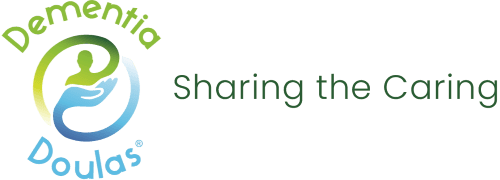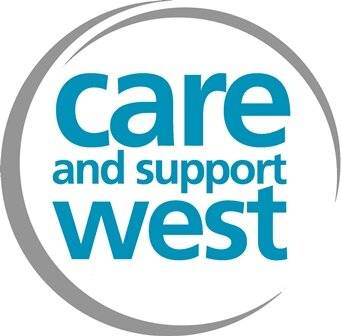What To Do When Someone Dies
Whether sudden or expected, losing someone is not easy. As well as the emotions you will be feeling, there is a lot of admin to do too. We have devised a simple guide for you to follow:
1. Notify your loved one’s surgery or contact the NHS.
1. Notify Your Loved One’s Surgery or Contact the NHS
A doctor will be needed for a certificate of cause of death (This is NOT a Death Certificate). If the death was expected this is easily done. If it wasn’t or the doctor cannot be absolutely sure of the cause, then it will be referred to the Coroner. This means you will probably have to wait for a post mortem and ‘coroner’s report’ to then get a cause of death.
2. Funeral Directors
Once the doctor has been, this is when you can choose a funeral director to look after your loved one until cremation or burial. Once you have called them they will come at a time that suits you. Even if the death is referred to the coroner you should be able to choose your funeral director.
If you don’t know which funeral director to use, you can contact localfuneral.co.uk who have a list of local providers via their website or on 0800 090 2336. You can also look through The Good Funeral Guide.
Many people also choose The Co-op which is nationwide, but local numbers are:
Cheltenham – 01242 580336
Gloucester – 01452 713085
However, if the death does not need to be referred to the coroner, you CAN care for the person at home and not use a Funeral Director at all. This can be more personal and cheaper.
You can lay them out in a cool space, ideally for under a week, while you buy a coffin or shroud and book the ceremony. The best guide for this is from The Natural Death Society.
3. Register the Death.
If you get a certificate of death from the doctor you have to report the death at the local registrar office within 5 days of the death. This timescale is not possible if it has been referred to the Coroner, and this is OK. Instead, you can just register the death when you get the certificate from the Coroner. Where hardship would result from not being able to produce a Death Certificate, the Coroner can arrange to issue an interim death certificate.
Who can register the death? (in this order of preference):
·A relative of the deceased.
·A person present at death.
·The occupier of the house or institution where the death took place, if there is no known relative who is able to register.
·The person who is arranging the funeral, that is the person instructing the Funeral Director.
Once you have made an appointment to register a death with the local registrar, it’s important to provide them with as much information about the person who died as possible and it will be helpful if you have the following documents with you:
·Birth Certificate.
·Council Tax bill.
·Driving License.
·Passport.
·Marriage/Civil Partnership Certificate, if applicable.
·NHS Medical Card.
·Proof of address.
You don’t need to have all of the above paperwork to register a death, so don’t worry if it’s not all available. The most important piece of paperwork is the Medical Certificate of Cause of Death. Without this, you will not be able to register the death.
You will also need to provide the registrar with the following information:
·The full name of the person who died.
·Their full home address.
·Their date and place of birth.
·Details of where and when the person died.
·Their occupation, if applicable.
·If they were receiving any benefits, including pensions or allowance from public funds.
·The name, occupation and date of birth of their spouse or civil partner, if applicable.
Registering the death is free, but you do have to pay for death certificates. The cost of a certified copy varies by location but is usually between £8 and £12. Your local register office will be able to confirm the cost. Ask for at least 6 official copies of the death certificate as:
a. If you request more afterwards it’s a lot more expensive and takes at least two weeks
b. You will need to send an official copy to their bank, mortgage company, pension, etc (See Point 5).
The process of registering a death should take approximately 30 minutes.
After registering a death, you will be given a Green Certificate for burial or cremation as well as your copies of the Death Certificate.
4. Informing Institutions.
Once you have a Death Certificate you can then tell the Government Departments. The best way of doing this is by using their free Tell Us Once service on the GOV.UK website.
They will then inform:
Passport Office to cancel their passport.
HM Revenue & Customs (HMRC) for their taxes.
Department for Work and Pensions (DWP) to stop their State Pension and benefits.
Driver and Vehicle Licensing Agency (DVLA) to cancel their driving license, car tax and car registration documents.
Local council for their Council Tax, electoral register and other housing benefits.
Public sector or armed forces pension scheme for their pension.
You will need to provide the following information:
Unique reference number given to you when you register the death.
Name, date of death and National Insurance number of the deceased.
Contact details, date of birth, passport number (if available) and National Insurance number of the next of kin.
Details of the person dealing with the deceased’s estate.
Permission from the next of kin, the executor, the administrator or anyone who was claiming joint benefits or entitlements with the deceased, to give out their contact details.
5. Notify Banks, Insurers and Creditors.
Ideally, you would do this as soon as possible after receiving the death certificate, or within a month of the death. If you have Power of Attorney this ceases upon your loved one’s death. There are possibly many institutions to contact and these include their:
Insurance company: home, car, pet, public liability
Bank or building society
Credit card companies
Utility companies
Private/work pension provider
Private medical insurer
Investment/shares platform
You can call the company, visit the local branch (for banks or building society), or visit their website, where they might have an online form that you can complete. They will all have a dedicated Bereavement Service.
It is free to notify these companies but the person who died might have had outstanding debts or payment arrangements with these companies that need to be settled.
You will need official copies of the Death Certificate when dealing with these companies (This is when your multiple copies come in useful). You’ll also need to give the contact details of the executor or administrator of the estate.
6. Arranging the Funeral.
As stated earlier, you can use a local Funeral Director or organise it yourself and have a DIY funeral if it is something you truly want to do. Natural Death will guide you through this.
However, the first thing to consider when arranging a funeral is the final wishes of your loved one. You may also want the assistance of a religious or spiritual adviser depending on personal beliefs.
There are many decisions to be made when arranging a funeral:
·The style of service
·The type of coffin.
·The venue.
·Flowers.
·Music.
·Readings.
·Who to invite.
Some of these decisions will have an impact on the final cost of the funeral. Funeral costs can be paid for out of your loved one’s estate and their bank would normally authorise any payments relating to any send off even if the bank account is frozen for probate purposes. Help with funeral costs is available if you are struggling to cover costs. More information can be found here.
There are now quite common alternatives to a traditional cremation or burial.
Green Burial
- Green burials look pretty much like normal burials but no embalming fluids or toxic chemicals can be used. Only biodegradable coffins, such as wicker ones, can be used, or the body is simply placed in an unbleached cloth shroud. This allows your loved one to decompose naturally. Many green burial grounds also act as wildlife refuges. You can search here.
Direct Cremation
Direct cremations are unattended cremations if you don’t want a funeral or want to create ashes for a later dispersal ceremony. The cheapest I have found is with Cremation Funeral but there are many providers around.
Dispersal of Ashes
Ashes can be buried in a biodegradable urn tree, scattered at sea or at a favourite place – https://www.urnsforashes.co.uk.
They can be made into jewellery – https://ashesintoglass.co.uk.
Tattoos – https://cremationink.com.
And even fireworks – https://heavenlystarsfireworks.com.
7. The Dreaded Probate!
Probate is dealt with through the Government here.
Applying for Probate means applying for the legal right to deal with someone’s property, money and possessions (their ‘estate’) when they die is called ‘applying for probate’. You must estimate and report the estate’s value before you apply for probate. Depending on its value, you may have to pay Inheritance Tax.
If there’s tax to pay, you normally have to pay at least some of it before you’ll get probate. You can claim the tax back from the estate or the beneficiaries if you pay it out of your own bank account.
Probate Application Fees
The application fee is £215 if the value of the estate is £5,000 or over.
There’s no fee if the estate is under £5,000.
Extra copies of the probate cost £1.50 each. This means you can send them to different organisations at the same time.
You may not need probate if the person who died:
·Had jointly owned land, property, shares, bank accounts or money – these will automatically pass to the surviving owners.
·Only had savings or Premium Bonds.
Contact each asset holder (for example a bank or mortgage company) to find out if you’ll need probate to get access to their assets. Every organisation has its own rules.
8. Other Bits and Bobs.
Medications need to be returned to a pharmacist as soon as possible.
Medical/mobility equipment. Gloucestershire Community Equipment Service and loan services in other areas will appreciate any borrowed items returned. Some things can even be handed back to libraries.
Don’t be in too much of a rush to clear out personal items. It might take a while for you and your family to decide what is important to keep.
Contact Dementia Doulas Ltd
For Dementia home care in Cheltenham, Gloucester, Stroud, Tewkesbury, Bishop’s Cleeve and the surrounding areas, get in touch with us today.








